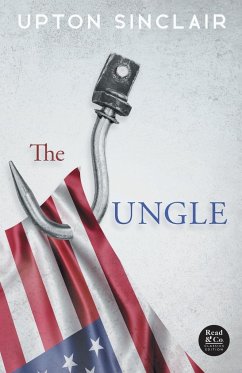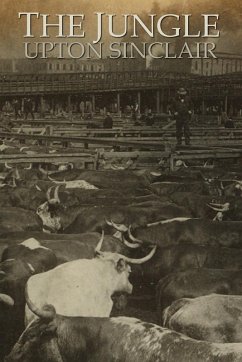
The Jungle
Versandkostenfrei!
Versandfertig in über 4 Wochen
7,49 €
inkl. MwSt.

PAYBACK Punkte
4 °P sammeln!
Upton Sinclair's classic revelatory novel about turn-of-the-century business and immigrant labor practices. Jurgis Rudkus, a young Lithuanian immigrant in search of a better life, faces instead an epic struggle for survival. His story of factory life in Chicago in the early twentieth century is a saga of barbarous working conditions, crushing poverty, crime, disease, and despair. Upton Sinclair's vivid depiction of the horrors of Chicago's stockyards and slaughterhouses aroused such public indignation that a government investigation was called, eventually resulting in the passage of pure food ...
Upton Sinclair's classic revelatory novel about turn-of-the-century business and immigrant labor practices. Jurgis Rudkus, a young Lithuanian immigrant in search of a better life, faces instead an epic struggle for survival. His story of factory life in Chicago in the early twentieth century is a saga of barbarous working conditions, crushing poverty, crime, disease, and despair. Upton Sinclair's vivid depiction of the horrors of Chicago's stockyards and slaughterhouses aroused such public indignation that a government investigation was called, eventually resulting in the passage of pure food laws. More than a hundred years later, The Jungle continues to pack the same emotional power it did when it was first published. Includes an Introduction by Alicia Mischa Renfroe and an Afterword by Dr. Barry Sears












